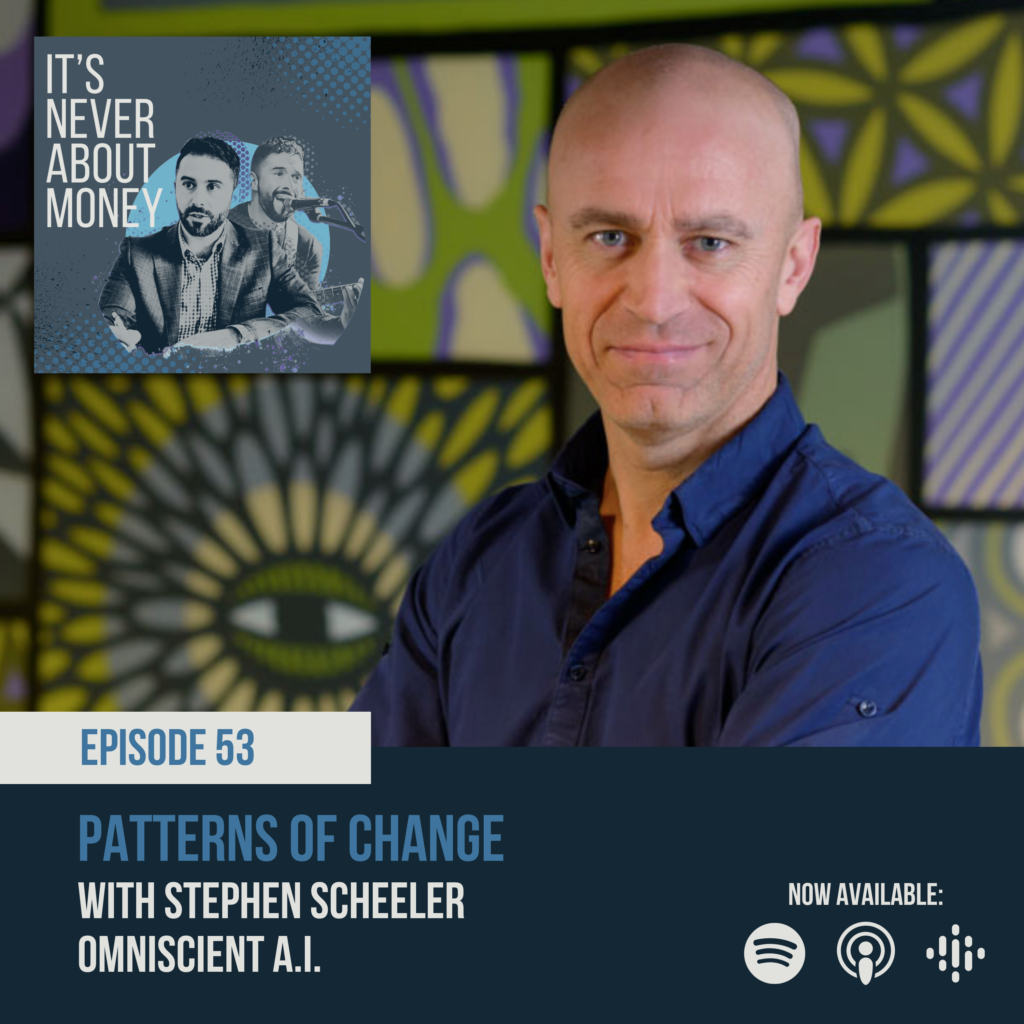This podcast episode was a truly fascinating one. The episode traversed the topics of health, community, personal development and technology.
My guest was Stephen Scheeler, former Facebook CEO for Australia and New Zealand, and co-founder and CEO of the Omniscient A.I. – the world leader in using A.I. to decode the human brain.
He shared the following article with me, giving background on Omniscient A.I. and its potential to change the world for the better.
________________
AI and the coming revolution in human brain health
Recent (and emerging) breakthroughs in AI and neurotechnology are making the once impossible possible: providing humans with an exponentially-deepening understanding of the human brain as a data processor and supercomputer at the very centre of human experience and existence.
The field of connectomics (decoding the brain through AI) is quickly emerging as an operating system for the human brain – and is likely to be one of the most significant and impactful technology developments in human history.
In essence, connectomics AI enables an understanding of the human brain down to the level of brain networks and brain circuits – enabling, among other things, individuals to literally see mental illness, learning disabilities and neurodegeneration within an individual’s connectome.
Connectomics AI is as massive a leap in humankind’s understanding of the brain as Roentgen’s discovery of X-rays in 1895 was for the understanding of other organs and structures of the human body. Using AI to decode the brain through connectomics is one of the most impactful technology breakthroughs of the 21st century.
The ‘so what’ of this is profound. For example:
- Potential for historic, game-changing breakthroughs in the diagnosis and treatment of mental illness, learning disabilities and neurodegeneration (which effect >2B people every year, and cost the global economy >10% of global GDP);
- Potential for huge, rapid advancements in areas like learning & development and intelligence augmentation;
- Potential for the concomitant leveling of historically intractable social and economic inequalities for medically-underserved and economically-deprived populations around the world.
Connectomics AI technology is truly game-changing for human well-being, quality of life and prosperity… but there are a number of obstacles and risks which may stand in the way of 8 billion humans benefiting equally and rapidly from its full potential. These include:
- Cost – must be affordable to all who would benefit from it, and reimbursable through insurance / public health systems;
- Access – must be available where people can readily gain access;
- Training/Enablement – medical professionals must have the right training, and at the right levels, to enable universal access;
- Data rights – brain data rights must be well-defined, but should strike a balance so as not to inhibit the rapid development and spread of connectomics AI technologies to those in need;
- Regulatory blockers – regulatory (eg medical, data, privacy) settings need to be properly nuanced in order to ensure beneficial connectomics AI technologies are not unduly inhibited from rapid advancement to as many people as possible;
- Misuse & unintended outcomes – there is significant risk of misuse and unintended outcomes from connectomics AI technologies – by government, military, corporations, individuals and the medical establishment. These risks and outcomes should be well-researched and openly-debated, and frameworks should be put in place to mitigate misuse and harm to individuals and societies
To give one simple, audacious goal: Omniscient want to eliminate mental illness from the planet by 2100 through connectomics AI.
This is akin to eradicating smallpox or polio, or ensuring universal access to sanitary sewage systems.
Like access education and clean water, I see access to connectomics AI technology as a universal human right.
There is a lot of discussion going on today about the potential benefits and dangers of AI. But there is very little discussion about connectomics AI and its potential to profoundly change the world for the better.







